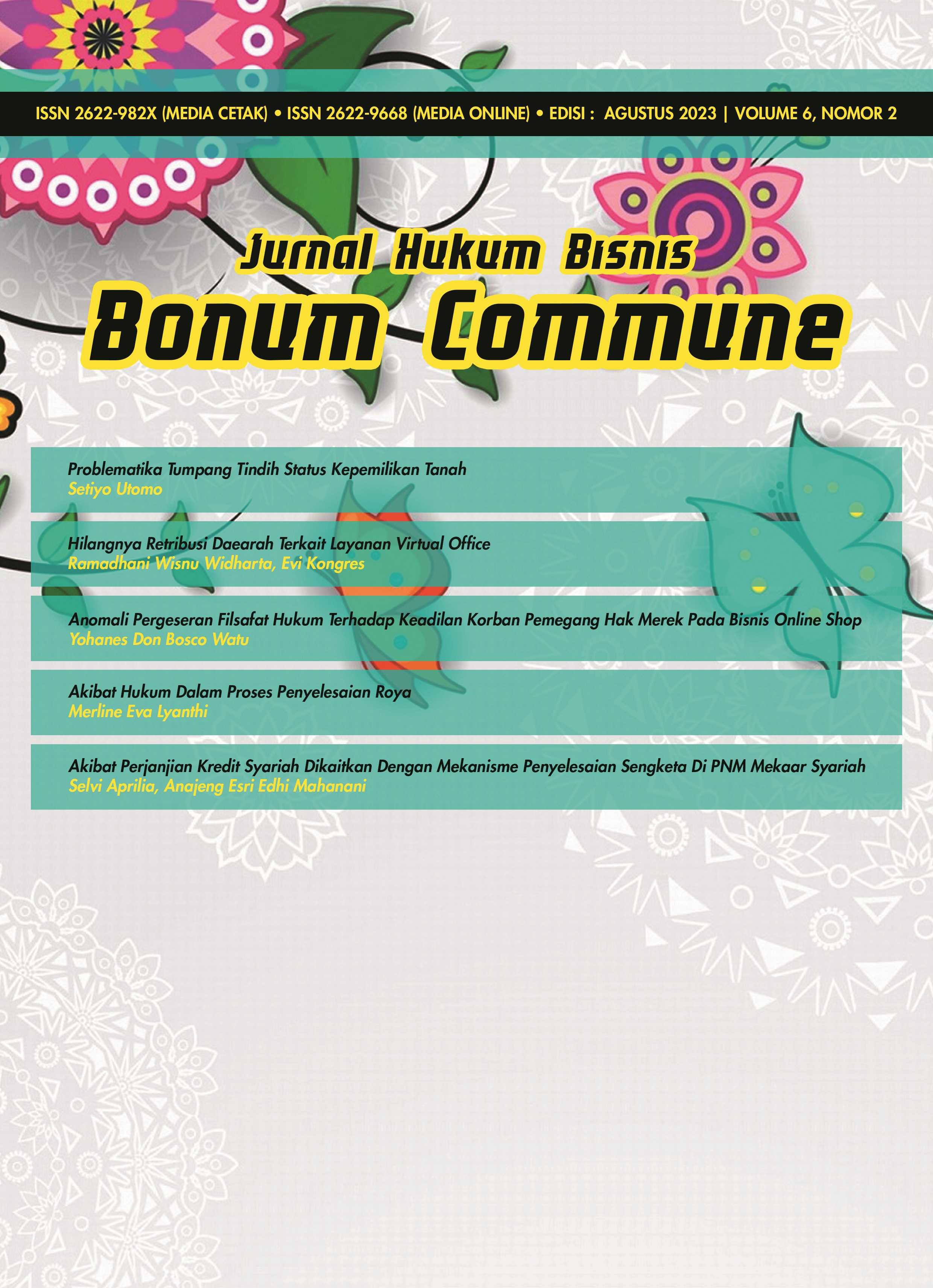Problematika Tumpang Tindih Status Kepemilikan Tanah
DOI:
https://doi.org/10.30996/jhbbc.v6i2.8356Abstract
The purpose of this study is to analyze the problem of overlapping land ownership status that still occurs as land certificates are absolute things owned by landowners. Overlapping land certificates need to be resolved by referring to several applicable provisions to provide certainty and guarantees for the land owned by the community. The research method used is juridical-normative research with a statute approach and a conceptual approach. The result of the analysis is the current implementation of the land registration system in Indonesia which has an impact on the issuance of land certificates so that the role of the land office as the party issuing the land certificate is not as a guarantor of legal certainty in the absence of lawsuits in the future. Reviewing the land registration system in Indonesia as an effort to provide guarantees of legal certainty as well as part of overcoming problems over overlapping land ownership statuses owned by communities
Downloads
Downloads
Published
Issue
Section
License
Authors who publish with Jurnal Hukum Bisnis Bonum Commune agree to the following terms:
- Authors transfer the copyright and grant the journal right of first publication with the work simultaneously licensed under a Creative Commons Attribution-ShareAlike 4.0 International License.. that allows others to share the work with an acknowledgement of the work's authorship and initial publication in this journal.
- Authors are able to enter into separate, additional contractual arrangements for the non-exclusive distribution of the journal's published version of the work (e.g., post it to an institutional repository or publish it in a book), with an acknowledgement of its initial publication in this journal.
- Authors are permitted and encouraged to post their work online (e.g., in institutional repositories or on their website) prior to and during the submission process, as it can lead to productive exchanges, as well as earlier and greater citation of published work (See The Effect of Open Access)














